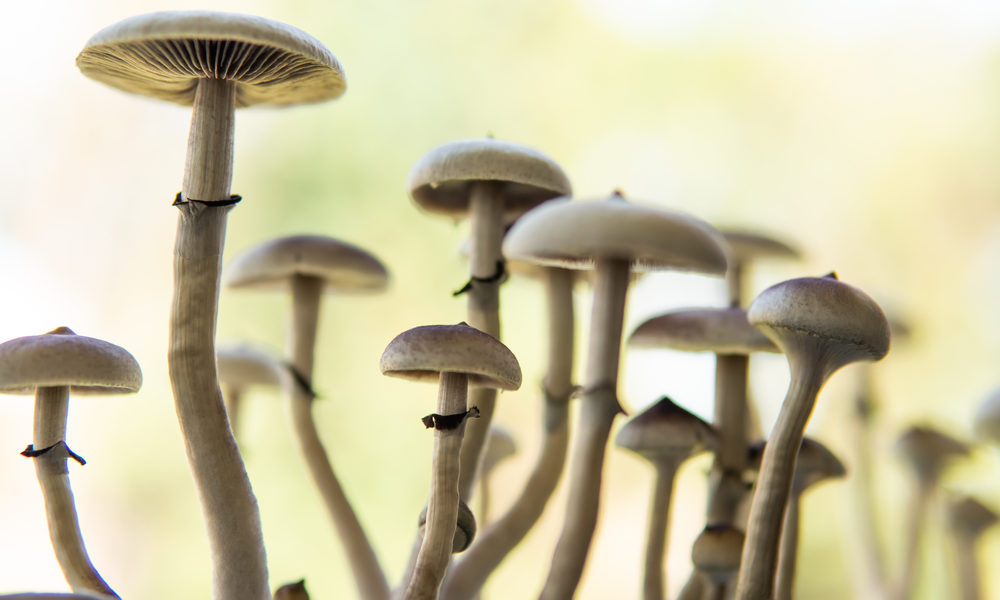It’s hard to ignore the many new findings around psilocybin. While mental health has surely been the star of the show as new studies and research continue to show the promise this psychedelic compound holds for symptom relief of a variety of conditions, scientists are now taking a look at psilocybin’s potential to combat a separate issue: cluster headaches.
A recent study published in Headache: The Journal of Head and Face Pain investigated the effects of psilocybin in cluster headaches, and while the results may prompt more questions than answers, it acts as a jumping off point for further research in the future. The study was also the first randomized, double-blind, placebo-controlled study to systematically investigate the effects of psilocybin on cluster headaches.
Cluster headaches occur in cyclical patterns or cluster periods and are considered one of the most painful types of headaches, according to research from the Mayo Clinic. These headaches are characterized by sudden, intense pain, and cluster periods can last from weeks to months, generally followed by a remission period when the headaches stop. They are less common than migraines, affecting one out of every 1,000 people, though some people get both types of headaches.
While remission periods tend to get longer with age, cluster headaches are often a lifelong condition.
The study authors note the anecdotal evidence of sustained reductions in cluster headache burden has been reported following consumption of limited quantities of psilocybin mushrooms,
“although to date there are no controlled studies investigating these effects.”
To take a closer look at the potential of the psychedelic compound, participants were randomized to receive psilocybin or placebo in a pulse of three doses, each approximately five days apart. Participants then maintained headache diaries beginning two weeks before their first dose and continuing through eight weeks after the first drug session. The study randomly chose 16 participants aged 21-65 years to receive psilocybin, and 14 were included in the final analysis.
The results noted that those who received psilocybin tended to experience a lesser amount of cluster headache symptoms, though researchers ultimately found that this reduction was not statistically significant when compared to the placebo group.
“Findings from this initial, exploratory study provide valuable information for the development of larger, more definitive studies,” researchers concluded. “Efficacy outcomes were negative, owing in part to the small number of participants. The separation of acute psychotropic effects and lasting therapeutic effects underscores the need for further investigation into the mechanism(s) of action of psilocybin in headache disorders.”
Lead researcher Emmanuelle A. D. Schindler, an assistant professor of neurology at Yale School of Medicine and medical director at the Headache Center of Excellence at VA Connecticut Healthcare System, shared with PsyPost that it was “apparent” that some subjects in the study responded to psilocybin while others did not. Schindler, too, pointed to the sample sample size as a limitation, alongside the single treatment round (results for a repeat round of treatments are expected to be shared later this year).
Schindler also highlighted the distinction between this study and many others that came before it showing a relationship between psilocybin and symptom relief, namely that those other studies mostly centered on mental health. As cluster headaches are not mental health conditions, Schindler said this lack of a relationship “makes sense.”
“The protocol in my cluster headache and migraine studies does not include some of the procedures in mental health studies, such as psychotherapy, again because headache disorders are not psychiatric conditions,” Schindler said, adding that it’s important to recognize that the application of psilocybin may need to change depending on the condition.
“It’s also interesting to note that psychedelics have overlap with headache medicines, both in their chemistry and pharmacology,” Schindler said.
Schindler was also a researcher on a 2020 study looking at the migraine-suppressing effects of psilocybin. The study similarly provided preliminary evidence that the compound could provide therapeutic benefits to those suffering migraines.
“While encouraged by the findings in this exploratory study, before this approach could be used clinically, it is imperative that additional controlled investigations be completed in order to understand psilocybin’s full capacity to suppress migraine, as well as its long-term safety and tolerability,” the 2020 study concluded.

